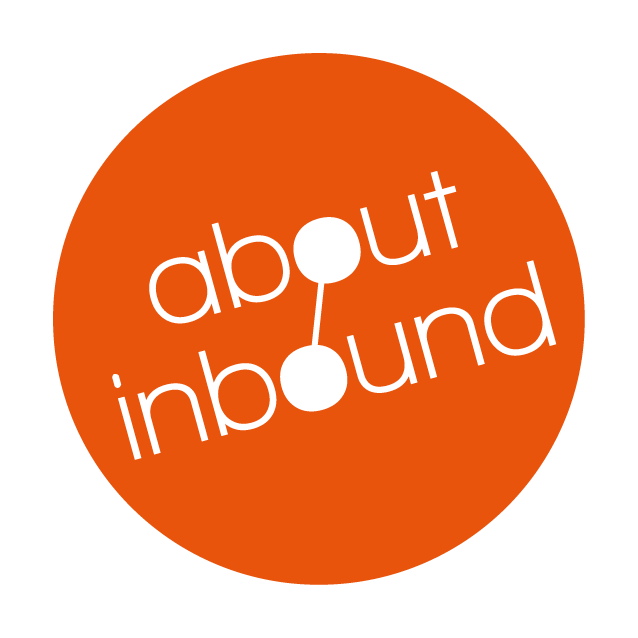The yearly marketing spectacle that is Hubspot's Inbound19 conference has just concluded. Every year there are keynotes by Hubspot founders Dharmesh Shah and Brian Halligan as well as many interesting product announcements and inspiring sessions by other business leaders and inspirational speakers. We always watch as many of these speeches as possible because they are full of interesting information and insights into the current and future business and marketing landscapes. Luckily Hubspot kindly records and uploads at least the keynotes to their youtube channel so they are easy to check out, even if you can't make it to the event. I tend to summarise these talks while watching them to ensure I get the full message. Since it't a lot easier to read a 3 minute summary than to watch a 50 minute video I decided to publish these summaries for those of you who want to recap what they saw or simply don't have time to watch the full videos.
Dharmesh Shah: Facing Fears: Growing Better by Growing Bolder.
Dharmesh's Keynote was definitely worth watching. It is all about fears and how to face them. He shows his of his biggest fears and then goes down to business with the five fears to conquer so that you grow bolder.The full video is 48+ minutes in length. I have quoted and paraphrased my key takeaways which should only take a few minutes for you to read through . I added the time where they occur in the videos so you can skip straight to the things you might want to watch in more details.
Note pretty much all of the below is summarized and therefore quoted or paraphrased from the video. The content belongs to Dharmesh shah/ Hubspot inc and this post is only meant to help you digest it. I would recommend you watch the bits of the video referenced that sound interesting to you.
After an intro with some funny personal stories of the fears he has had to personally face, he gets down to fears that we encounter in business. At the end of each of the fears he compares what we fear to what we should fear.
1. Fear of commitment: 14:30
A hesitation to commitment often stems from wanting to hedge your bets14:48 - Define your market. It should be big enough to grow and small enough to delight
17:50 - A lack of delighted customers is not the quickest way to kill growth. But it is the most reliable
- What we fear: unwavering commitment
- What we should fear: uninspired compromises
2. Fear of differences: 18:20
24:20 - its a mistake not to focus on diversity within your team from the start - but its never too late (one of the mistakes Dharmesh feels he would correct if he had to do it again)Being different is better then being the same - diversity brings strength.
29:20 - There is a thin line between hiring for culture fit and hiring someone that is "a clone" of me
You need to people that are different and diverse to enrich your culture.
So you should hire people that add to your culture and aren't just part of it.
To be able to do this you need to define and communicate your culture code - clearly define what and who you value and also how you operate - write your code - this should evolve.
- What we fear: Discomfort of differences
- What we should fear: Surrendering to sameness
3. Fear of change: 30:56
31:50 - the business round table (top companies in the world) recently (2 weeks ago) redefined what they see as the main purpose of a corporation. For several decades this was defined as: deliver shareholder value (driving profits)It is now redefined to:
- Delivering value to our customers
- Investing in our employees
- Generating long term value for our shareholders.
- you want to attract and retain the best customers and also the best people
33:30 - The future of work is in flexibility (allow your workforce to be flexible in- Where, when, how)
34:24 - The flexibility that your customers seek in how they connect is the comparable to the flexibility of your workforce seeks in how they work. Remote work is a big part of this and Hubspot has been adapting to increase it's remote workforce.
- What we fear: Change
- What we should fear: Stagnation
4. Fear of disappointing: 37:10
You can't design your product to please everyone.39:45: When Steve jobs rejoined Apple as interim CEO in 1997 he turned them around by reducing the amount of products sold by 70% and ensured that the remaining products fit 4 key categories. This simplification will have disappointed some but it turned apple around.
Giving your customers too much choice (e.g. to many products in your product line customers actually adds friction.)
- What we fear: Disappointing a few
- What we should fear: Not delighting many
5 Fear of inferiority: 41:25
The fear of inferiority leads to overselling products, that therefore perform below expectations. An example is given here of a company that oversells markers by misleading its customers by tricking them into thinking that there are more markers in the box then there are (big box with the empty part blinded out and a misleading slogan). Dharmesh mentions that there are some good advantages stated on the box that the company should have focused on instead.
42:40
Trust is scarce. Companies that can provide it will succeed. They can do this by:
- Doing things we want and expect
- Not doing things we don't want
43:20: The oath of experience should be adapted by all business - to deliver the experience our customers want. Nothing less and nothing more.
- What we fear: Inferiority (products/services not good enough).
- What we should fear: Being untrustworthy (overselling a product - short term focused)
47:25 - Magic happens when you face your fears.
- Face your fears in small steps - one piece of customer feedback. One piece of friction at the time


